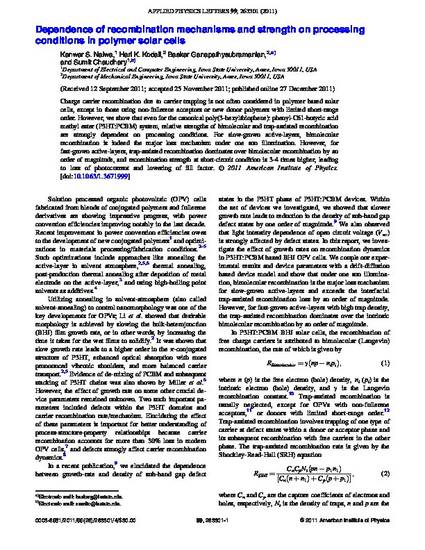
Charge carrier recombination due to carrier trapping is not often considered in polymer based solar cells, except in those using non-fullerene acceptors or new donor polymers with limited short-range order. However, we show that even for the canonical poly(3-hexylthiophene): phenyl-C61-butyric acid methyl ester (P3HT:PCBM) system, relative strengths of bimolecular and trap-assisted recombination are strongly dependent on processing conditions. For slow-grown active-layers, bimolecular recombination is indeed the major loss mechanism under one sun illumination. However, for fast-grown active-layers, trap-assisted recombination dominates over bimolecular recombination by an order of magnitude, and recombination strength at short-circuit condition is 3-4 times higher, leading to loss of photocurrent and lowering of fill factor.
Available at: http://works.bepress.com/sumit-chaudhary/3/

This article is published as Nalwa, Kanwar S., Hari K. Kodali, Baskar Ganapathysubramanian, and Sumit Chaudhary. "Dependence of recombination mechanisms and strength on processing conditions in polymer solar cells." Applied Physics Letters 99, no. 26 (2011): 279. DOI:10.1063/1.3671999. Posted with permission.